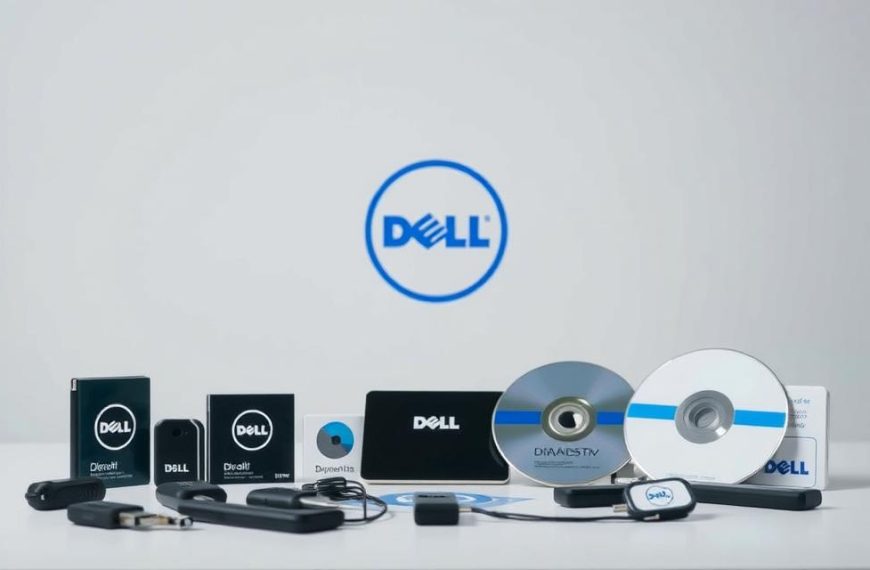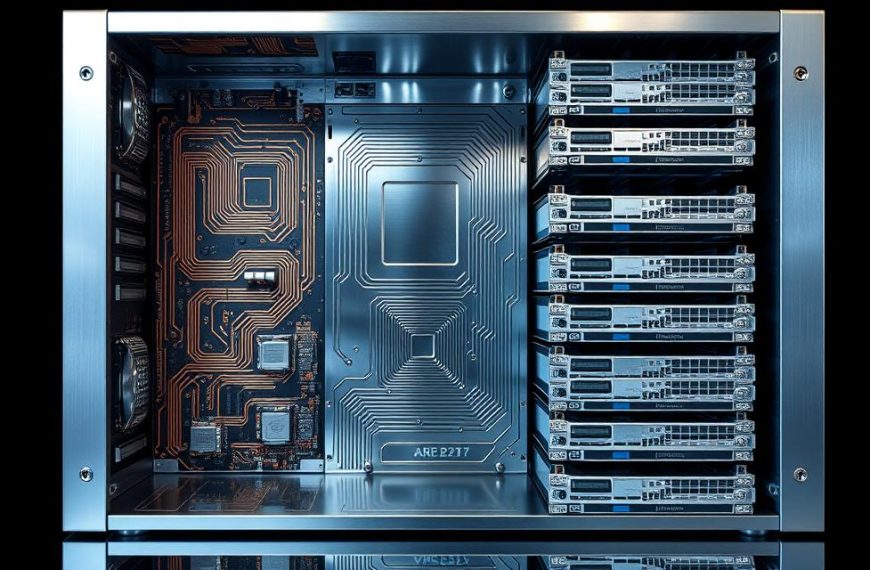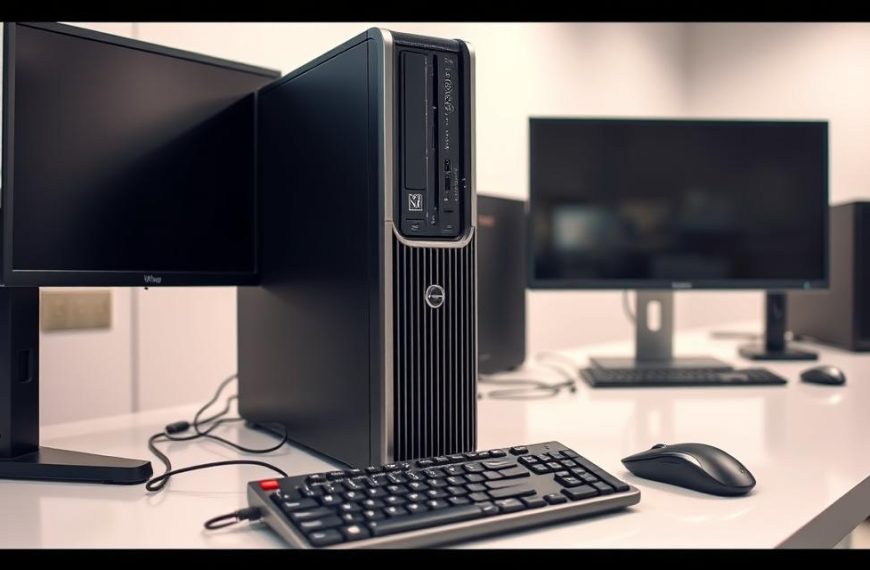Computer hardware engineers shape our digital world. They design and develop advanced computer systems and components. Their innovative work powers the rapid evolution of technology12.
These professionals blend technical expertise with creative problem-solving. They’re vital in developing cutting-edge computing technologies across various sectors. Consumer electronics, research, and manufacturing all benefit from their skills1.
The field offers promising opportunities for aspiring technologists. Employment is projected to grow 5% from 2021 to 20313. This growth reflects the increasing demand for innovative electronic solutions.
Most computer hardware engineers hold a bachelor’s degree in computer engineering or related fields2. Strong analytical skills and technical proficiency are essential. An innovative mindset helps them design complex electronic systems.
These engineers drive technological advancement. Their work shapes the future of computing. They’re at the forefront of creating tomorrow’s electronic solutions.
Who is a Computer Hardware Engineer?
Computer hardware engineering is crucial in today’s tech world. These experts design and develop physical components for our digital devices4. Computer hardware engineers turn tech ideas into real computing solutions5.
Origins of Computer Engineering
Computer engineering began in the 1940s and 1950s. This era saw huge tech innovations6. Hardware engineers became key in developing new computing systems.
Core Professional Responsibilities
Hardware engineers have many technical tasks:
- Designing computer components like CPUs and motherboards4
- Testing and validating electronic systems4
- Collaborating with software engineering teams4
- Analyzing emerging technology trends4
Professional Work Environments
These engineers work in offices and research labs4. Computer systems design services employ about 26% of them4. Remote work is becoming more common in this field4.
The field offers many specialisations. These include processor design, memory systems, and network hardware engineering4. Engineers need deep knowledge of computer architecture and electronic circuits4.
Essential Skills and Qualifications Required
A successful computer hardware engineer needs a mix of education and specialised skills. The right academic credentials and technical competencies form the basis of a strong career.
Educational requirements for hardware engineer skills typically include:
- Bachelor’s degree in computer engineering or related field7
- Potential master’s degree for advanced positions8
- Professional certifications to enhance job prospects7
Computer engineering qualifications go beyond formal education. Employers look for professionals with technical prowess and soft skills.
- Analytical thinking: Breaking down complex technical challenges
- Problem-solving abilities: Developing innovative hardware solutions
- Communication skills: Collaborating with cross-functional teams
- Technical proficiency: Mastering computer-aided design (CAD) and programming languages
Hardware engineering requires constant learning. Professionals must keep up with new technologies and industry trends to stay competitive8.
Networking through organisations like the Institute of Electrical and Electronics Engineers (IEEE) can provide valuable resources. It also offers career development opportunities7.
Professional development is not an option but a necessity in the rapidly evolving world of computer hardware engineering.
Aspiring hardware engineers should build strong technical skills. They should maintain an innovative mindset and pursue ongoing education.
These efforts will help them thrive in this dynamic field8.
Daily Tasks and Professional Responsibilities
Computer hardware engineers drive technological innovations forward. They create and advance computer hardware through various engineering tasks. Their role is crucial in developing cutting-edge technology.
Hardware engineers work in complex, dynamic environments. They need precision, creativity, and technical expertise. These professionals use advanced electronic design automation tools to bring concepts to life9.
Hardware Design and Development
The heart of hardware engineering lies in intricate design processes. Engineers focus on key areas of development.
- Sketching detailed schematics
- Visualising component placement
- Creating printed circuit board (PCB) layouts
- Developing prototype models
Testing and Quality Assurance
Thorough testing is vital in hardware engineering. Engineers use various strategies to ensure device reliability.
- Conducting comprehensive performance simulations
- Running stress tests on prototype components
- Analysing potential failure points
- Implementing quality control protocols
Collaboration with Software Teams
Hardware and software professionals must work together for successful computer hardware development9. Engineers often use Python to automate simulation flows and test hardware features.
“Effective collaboration is the cornerstone of innovative technological advancement.” – Tech Industry Insight
Top hardware engineers work across multiple industries. They find employment in research and development, semiconductor manufacturing, and computer systems design10.
Career Path and Professional Development
Computer hardware engineering offers a dynamic career path with multiple growth opportunities. Professionals often start as IT support specialists or technicians. They can then advance into specialised hardware engineering roles11.
Career development in hardware engineering involves several key strategies:
- Pursue advanced educational qualifications in electrical or computer engineering12
- Obtain relevant industry certifications
- Attend professional conferences and workshops
- Develop specialisation in specific technology domains
Professionals can specialise in networking, security, embedded systems, robotics, or gaming technologies11. Career paths include roles like hardware engineer, consultant, researcher, developer, tester, and management positions11.
The hardware engineering field requires continuous learning and adaptability. Professionals must invest in skills development to stay competitive11. Successful hardware engineers show flexibility and commit to ongoing professional growth.
Potential career advancement opportunities include:
- Hardware Engineering Specialist
- Senior Hardware Engineer
- Hardware Engineering Manager
- Chief Technology Officer
The job market for hardware engineers remains promising. Employment growth projections indicate stable career prospects11. Engineers who manage their career development strategically can expect rewarding opportunities.
Salary and Job Market Outlook
The UK’s computer engineering job market offers exciting prospects for skilled professionals. Hardware engineers enjoy competitive salaries across various tech sectors. Career growth opportunities are plentiful in this field.
Salaries for UK hardware engineers vary based on experience and specialisation. Entry-level professionals typically start at £82,250. Mid-career engineers earn around £95,000.
Experienced engineers can command salaries up to £102,000. This reflects their valuable expertise in tackling complex technological challenges.
Regional Pay Variations
Location significantly impacts hardware engineer salaries in the UK. Tech hubs like London often offer higher pay than other regions.
- Tech-centric regions provide more competitive hardware engineer salary UK packages
- Specialised skills can significantly boost earning potential
- Continuous professional development impacts salary progression
Job Market Projections
The computer engineering job market shows promising growth. Projections indicate a steady 4.5% expansion in job opportunities from 2022 to 2032.
About 4,600 new job openings emerge annually. This creates exciting prospects for aspiring hardware engineers13.
| Experience Level | Average Salary | Job Market Demand |
|---|---|---|
| Entry-Level | £82,250 | High |
| Mid-Career | £95,000 | Very High |
| Experienced | £102,000 | Excellent |
Professionals with advanced skills in CAD software and simulation tools can enhance their marketability. Over 70% of jobs require such expertise13.
Conclusion
Computer hardware engineering offers a dynamic career path with significant opportunities. It promises a bright future, with growing demand across multiple sectors14. Exciting prospects await in automotive technology, medical equipment, and home appliances14.
Continuous learning is vital for aspiring engineers. The tech landscape evolves rapidly, requiring constant adaptation and skill development15. Success comes to those who invest in education and maintain technical proficiency15.
Hardware engineering success requires more than technical know-how. Strong communication, problem-solving, and collaboration skills are crucial for professional growth15. These attributes help engineers contribute to technological advancement globally14.
The tech sector inspires creative and analytical minds alike. With increasing job openings across industries, hardware engineering offers an intellectually stimulating career14. It also provides financial rewards, making it an attractive choice for many.
FAQ
What qualifications do I need to become a computer hardware engineer in the UK?
A bachelor’s degree in computer or electronic engineering is typically required. Employers seek candidates with strong technical skills. Practical experience in CAD, programming, and operating systems is highly valued.
How long does it take to become a qualified computer hardware engineer?
The journey usually involves a 3-4 year undergraduate degree. Entry-level positions are available after completing your bachelor’s. Professional development continues throughout your career.
What is the average salary for computer hardware engineers in the UK?
Salaries vary based on experience and location. Entry-level engineers can earn £25,000-£35,000. Mid-career professionals typically make £35,000-£55,000.
Senior engineers in tech hubs like London can command salaries of £60,000-£80,000.
What are the primary responsibilities of a computer hardware engineer?
These engineers design, develop, and test computer systems and components. They create circuit boards, processors, and memory devices. They also work with software teams and ensure system reliability.
Are there opportunities for career progression in this field?
Yes, there are many paths for advancement. Engineers can move into senior roles or technical management. They can specialise in emerging technologies or transition to related fields.
What skills are most important for success in computer hardware engineering?
Key skills include analytical thinking and proficiency in technical design tools. Problem-solving abilities and excellent communication skills are crucial. Continuous learning is essential in this rapidly evolving field.
How does the job market look for computer hardware engineers in the UK?
The job market is promising, with steady growth expected. Opportunities exist in technology, telecommunications, and automotive electronics. The UK’s strong tech sector offers numerous prospects for skilled engineers.
What additional certifications can enhance my career prospects?
Professional certifications from bodies like the IET can boost your career. Vendor-specific qualifications from companies like Intel or Cisco demonstrate advanced expertise.
What industries typically employ computer hardware engineers?
These engineers work in diverse sectors. These include technology, telecommunications, aerospace, and automotive industries. Medical device manufacturing, research institutions, and government agencies also employ hardware engineers.
Is remote work common in computer hardware engineering?
Some aspects require physical presence in labs or workshops. However, many companies now offer hybrid working arrangements. Design work and collaboration can often be done remotely.
Source Links
- https://builtin.com/learn/careers/hardware-engineer
- https://www.uopeople.edu/blog/computer-hardware-engineer/
- https://www.bestcolleges.com/computer-science/how-to-become-computer-hardware-engineer/
- https://www.careerexplorer.com/careers/computer-hardware-engineer/
- https://www.mynextmove.org/profile/summary/17-2061.00
- https://www.techacademia.co.uk/career-academy/what-is-a-hardware-engineer/
- https://www.computerscience.org/careers/computer-hardware-engineer/
- https://www.computerscience.org/careers/computer-hardware-engineer/how-to-become/
- https://www.computerscience.org/careers/computer-hardware-engineer/day-in-the-life/
- https://www.coursera.org/articles/hardware-engineer
- https://www.linkedin.com/advice/0/youre-choose-career-path-computer-hardware-what-lr24f
- https://workbred.co.uk/career/hardware-engineer
- https://computerhardwareguide.co.uk/how-to-become-a-computer-hardware-engineer-skills-education-career-path/
- https://www.raypcb.com/computer-hardware-engineer/
- https://www.ituonline.com/blogs/computer-hardware-engineer-education/












